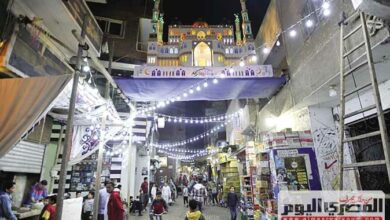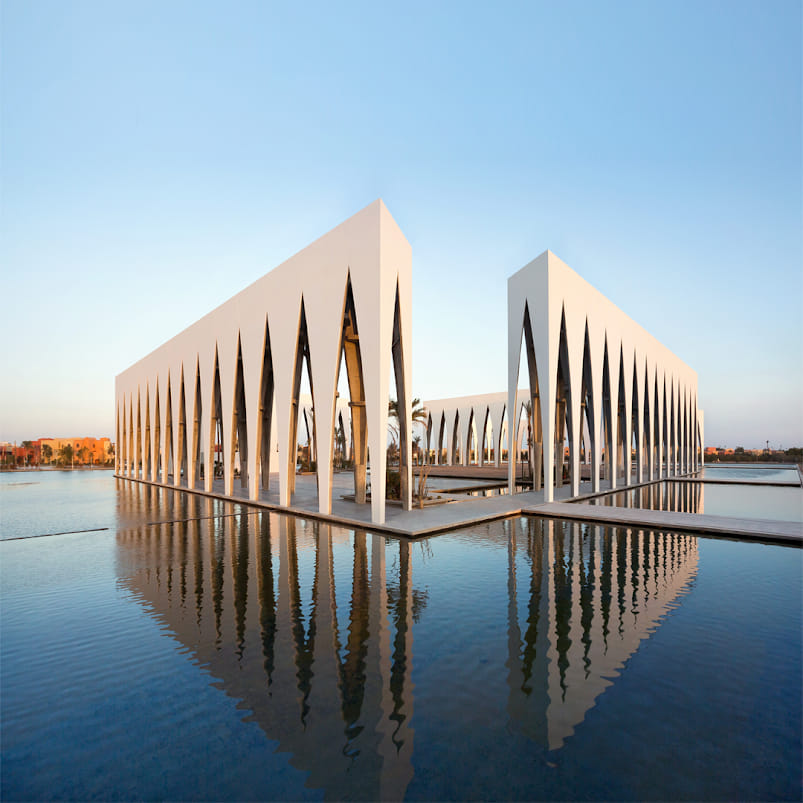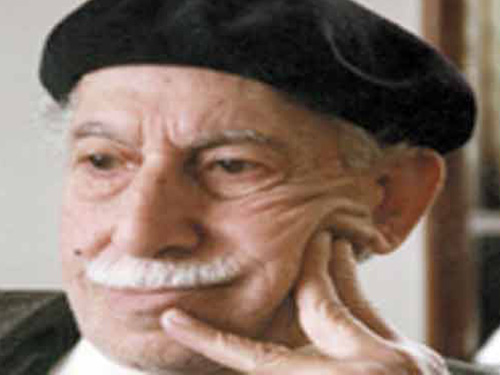The ongoing conflict in society is longstanding. It has existed for long decades and will continue, and it revolves around the role of religion in the state, the identity of society, and the right of those who claim to represent religion to interfere in public life and the private lives of people.
Thanks to the 25 January revolution, this conflict is back in the spotlight, after staying for a while in the shade under Hosni Mubarak’s regime, which insisted on using religion to boost its fragile legitimacy. Mubarak’s regime allowed Salafi groups to thrive, and secretly allied with them under the auspices of state security to counter the Muslim Brotherhood and jihadis.
He also pushed Christians into the confines of their churches. As a result, questions about religion, identity and the state disappeared, only to make a comeback after the 25 January revolution.
The 25 January revolution started off as a political uprising before taking on a social hue with social demands featuring in its slogans. It is a political revolution with a semi-social nature. But there was hardly any cultural dimension to the revolution. Today, however, there seem to be signs of a cultural revolution, illustrated in the contentious questions produced by the process of constitution writing and the standoff resulting from its endorsement.
Conflict is painful and it opens the door to several possibilities, some of which threaten to divide society and cause the state to fail, or at least abort democratic transformation. These frightening possible outcomes are what cause intellectuals, politicians and activists to postpone answering questions pertaining to culture and identity and urges them to call for consensus on the elements of the state and the constitution.
At the level of theoretical analysis, attempts to forge a fabricated consensus began with the referendum on the March 2011 Constitutional Declaration, when the military institution wanted to close certain dossiers that evoked painful questions, and let the people go back to their homes comfortable in the thought that they did not have to answer any difficult questions.
Hence, questions on identity were silenced under the pressure of politics and the confusion of the transitional period. That silence was deepened by the failure of the so-called secular elite to raise those questions courageously, especially since their answers were mostly confused and incoherent.
That fabricated consensus failed, its failure being manifest in the process of writing the constitution and the resulting standoff. This pushed the cultural conflict to rise to the surface again.
History tells us that countries do not succeed except by reaching consensus on state nature and the limits of the role of political authority and religion, and through agreement on basic definitions of religious and political freedoms.
One of the benefits of democratic transformation is that it evokes dormant questions in society, particularly on identity. During that process of transformation, diverse currents reveal their identities and uncover their secret agendas. Only at this point does societal dialogue become open and fruitful.
Societal dialogue should not be reduced to sitting to a negotiating table. Societal dialogue includes the insults traded on satellite channels and in papers, protests and counter protests, the employees’ morning chats over coffee, and the heated discussions between a politically averse mother and her revolutionary son.
Since that cultural conflict will have to take a long time to produce satisfactory or useful answers and determine the margin of action for the different cultural groups forming society, it is best resolved after principles on the transfer and separation of powers and other democratic principles are laid out.
In another point of view, all the threats surrounding the process of democratic transformation are themselves seen as catalysts for cultural conflict and capable of creating an environment that evokes the same difficult questions, particularly since cultural conflict is basically concerned with the pillars of the aspired democratic rule and its shape.
In my opinion, cultural conflict is not bad. Cultural conflict and questions on identity are needed for societies to reach political, social and economic stability. The problem is not cultural conflict in and of itself, but rather how it is managed, because failing to manage it will threaten the entire process of democratic transformation.
Egypt’s cultural and identity conflict was not managed rationally. This is reflected in the deliberations of the new constitution. Agreeing to keep Article 2 of the Constitution as it was in the 1971 Constitution would have provided a way out of the crisis. Even though I reject the article in principle, I believe it expresses the mindset of the majority of Egyptians. It could have remained to be discussed at a later stage.
But although secular powers accepted that Article 2 remain, which was a major concession on their part, Islamists have had to have things exactly their way in the distorted constitution. For the first time in the history of the country, they added articles that bolstered sectarianism and entrenched divisions, such as by specifying that only Sunni Islam is the frame of reference. They imposed their understanding of sharia, removing articles on women’s rights and failed to uphold children’s rights, opening the door to child abuse at work and through early marriage.
In short, Islamists and the military institution backing them are fully responsible for the failure of attempts at reaching consensus because of their desire to spread their influence and impose their ideas. Indeed, the newly endorsed constitution would be the subject of controversy and unresolved questions for a long time to come.
Amr Magdi is a political science researcher in Lund University, Sweden. This article originally appeared in Al-Masry Al-Youm Arabic website, and was translated by Dina Zafer.




